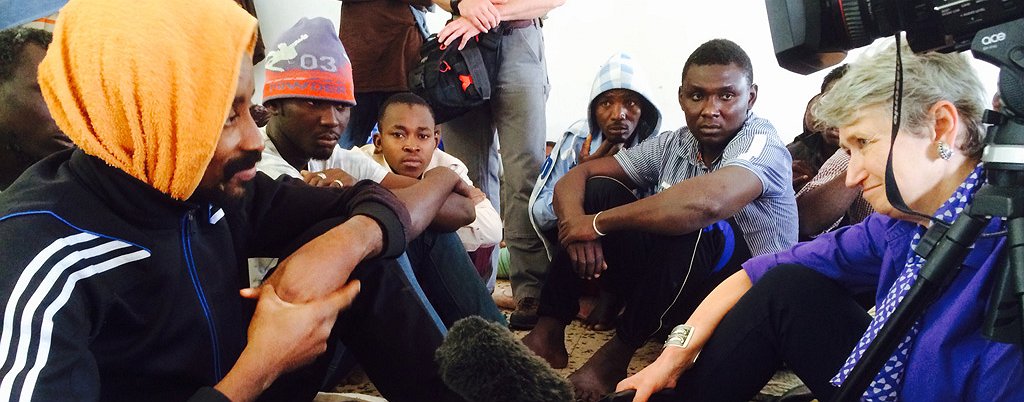A couple of years ago I interviewed three young men - a Nigerian, a Gambian and an Eritrean - who had been detained in Misrata, on the Libyan coast. They had been apprehended after setting out in rickety boats heading for Europe.
The Nigerian, whose name was Wisdom, had the gift of the gab. “I congratulate myself as a man that I tried. But I failed,” he said when I asked about his frustrated attempt to cross the Mediterranean.
The Gambian, Bubacar, was very earnest. “I want to be a better person,” he told me.
The most important thing when interviewing is to leave silences. Sometimes it feels awkward - you want to fill the void. But don’t. Leave it to the person you’re talking to
The Eritrean, Yonatan, surreptitiously showed me the beloved possession he had carried on his long journey across seven countries: his bible. “I will go on to wherever I can, maybe to America, until I get what I need - freedom,” he said.
African men are at the bottom of Europe’s hierarchy of desperation: designated “economic migrants” as if it were a crime to try to improve your lot. If you’re going to be a refugee or migrant, best to be a child or at least a woman from a warzone. I loved these interviews because they brought out the complex humanity of people who are frequently reviled and feared.
I’m not sure if my interviewing was especially skillful. In that desperate, crowded, filthy prison everyone had a story to tell. I chose three people who spoke good English and wanted to talk to me. I like conversational interviews - we had an exchange. Wisdom made me laugh.
In general I think the most important thing when interviewing is to leave silences. Sometimes it feels awkward - you want to fill the void. But don’t. Leave it to the person you’re talking to. Because that’s when they’ll say what they really feel, or wanted to hide.
